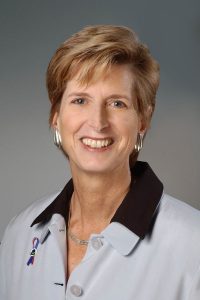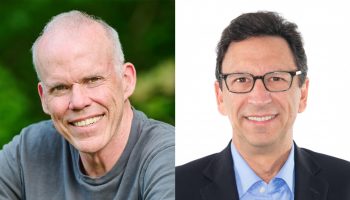
Influenced and inspired by generational traditions, Christine Todd Whitman’s love for both politics and the great outdoors runs so deep, she has decided to never choose between the two.
She was born into a long line of Republican leaders. Her father was a chairman of the New Jersey Republican State Committee. Her mother was a Republican National Committeewoman. Both of her grandfathers served the party in New Jersey as chief financiers.
Just as politics have a recurring place in the family tree, her commitment to environmental issues has roots of its own, stemming back to her upbringing at Pontefract, the family farm in New Jersey, where her parents raised her to leave every place better than she found it.
“That exposes you very early on to the effect man has on nature,” Whitman said.
Whitman, president of The Whitman Strategy Group and former governor of New Jersey, will open the 2020 Chautauqua Lecture Series at 10:45 a.m. EDT Monday, June 29, on CHQ Assembly’s Video Platform with a lecture on the Week One theme, “Climate Change: Prioritizing Our Global and Local Response.”
Following her tenure as governor, Whitman served in President George W. Bush’s cabinet as administrator of the Environmental Protection Agency from January 2001 to June 2003. In that role, she promoted environmental improvements such as watershed-based water protection policies and the reduction of sulfur emissions from non-road diesel engines.
To continue her work beyond the White House, she founded The Whitman Strategy Group, a consulting firm that specializes in energy and environmental issues, in 2004. Whitman said the firm was created to confront environmental challenges with innovative solutions.
“We work with companies that want to improve their environmental profile,” Whitman said. “We have had a number of clients come to us with new and innovative technologies. If we think it is scalable, we guide them in the right direction to help make it happen.”
To a point, that is.
“We don’t do any lobbying,” she said.
Her firm’s success notwithstanding, Whitman said she knows the issue of climate change is too large to rely on organizations alone. Therefore, she will open the week and the 2020 season with an emphasis on individual action.
“It is up to us,” Whitman said. “As it has happened in the past in 1969 and 1970 with the first Earth Day and environmental movement, it was people who made the difference, not a government suddenly coming up with an idea.”
That is not to say citizens shouldn’t hold their governors accountable too, she said.
“(My lecture) is reminding people of the difference they can make by challenging their elected officials and the people who want their vote by asking them ‘What’s your commitment to this? What are you doing about it?” Whitman said.
According to Whitman, the COVID-19 pandemic has brought the issue of climate change to an even higher level of “critical importance.” She said it will be even more important for future generations than the present, as COVID-19 won’t be the last crisis of its kind.
“There is no question in my mind that we are going to see more pandemics like COVID-19 in the future, because as we change ecosystems, different pathogens develop in different ways and we are going to see more of these things,” she said. “No credible scientist will say COVID-19 is due to climate change, but they will say ‘This is what you can expect, along with more frequent and intense storms, more severe droughts, more severe flooding.’ All of those things have economic consequences for us, too. But, we can clean up our environment and still have economic growth.”
This program is made possible by the Selina and Walter Braham Lectureship.




